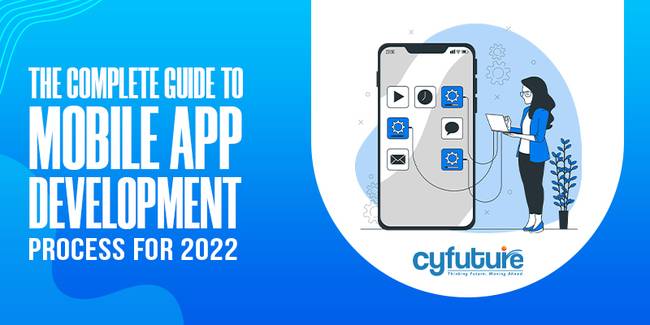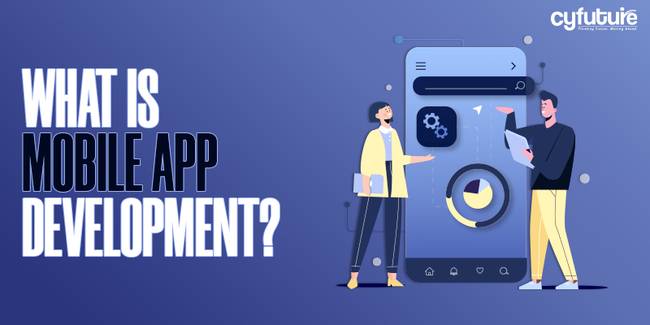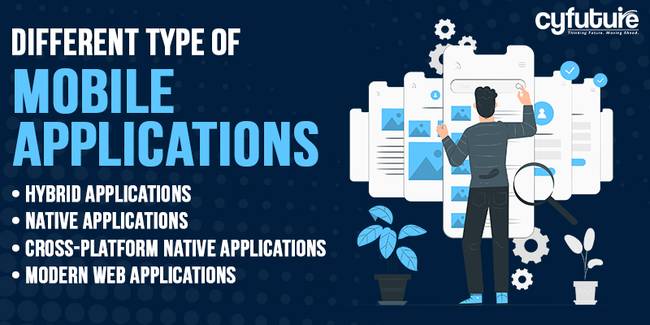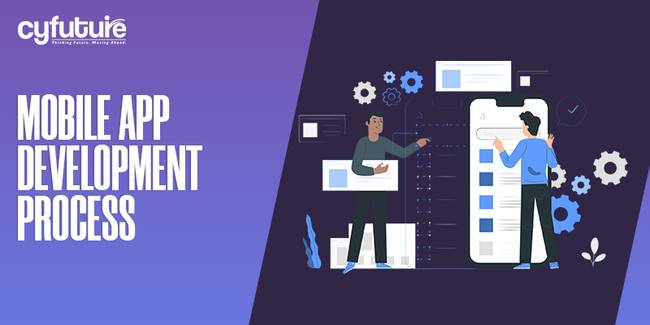-
Get Cloud GPU Server - Register Now!
Toggle navigation

Mobile application development is among the most notable techniques for making software and is persistently advancing with the increasing popularity of phones and tablets. As shown by Statistics, the yearly growth of the applications has achieved up to 111 billion dollars. Likewise, it shows a huge extension in the number of applications available in the Play Store and App Store. In addition, numerous new trends have been found in mobile app development services.
Clients often turn developers to make engaging mobile applications to fulfil the there requirement. We like to help clients with perceiving how the application would change the way they make a profit and get consumers.
Take a look at the space for mobile applications in 2022. In the growing competitive digital world, innovation should drive application experience and power users to get your application.
This article will cover everything about mobile application development, from mobile app development services to a mobile application development company. Before preceding the application creation process, we will first review the mobile application development process and its all platforms.

Mobile application development is the method of designing and developing mobile applications that run on smartphones. It is a blend of approach and procedure for writing code for mobile devices to characterize this.
Mobile app development includes different stages of development. It tries to take full advantage. The mobile application development process assists organizations with cost and usefulness.
The two industry-leading application development processes are iOS and Android: –
iOS applications execute on Apple hardware, and the software is developed with Objective C or Swift, which is subsequently deployed in App Stores. Android applications are a customized and modified version of the Linux and Java language climate.
Mobile applications have turned into another standard among individuals with the expanding utilization of mobiles and innovation in technologies. This shows that the applications market is as yet searching for successes in the approaching time.

Four essential development strategies are followed while designing mobile applications: –
Every procedure holds its pros and cons. Hence, pick a technique that accommodates your strategy to accomplish the ideal client experience and make your highlights for your application.
Hybrid applications are packaged as application bundles and run in a web container. A standard code base among web and mobile applications is one of the benefits of hybrid applications. Some most used mobile applications, like Gmail, Twitter, Amazon, and so forth, are hybrid applications. Hybrid applications use modules that allow coders to get all the native features of the platforms. Furthermore, they are quicker to create and simple to sustain in long term.
They are developed for just a single platform, written in one programming language for a particular working OS (operating system), like Android or iOS mobile applications. Mobile applications are quicker, more trustworthy, and offers offline functionality since they are designed to run on a particular working OS or platform. Native applications can give the best performance and have direct access to APIs.
A developer can utilize a variety of mobile application development languages and frameworks to make cross-platform native applications. These applications are subsequently arranged into native applications running on the device’s running framework. The main benefit of cross-platform native applications is that they just need to keep one code base for different platforms. This makes it simple to make and keep a cross-stage application.
Web applications run on smartphones and behave similarly to native smartphone applications. Conversely, there are significant differences between native and web applications. Web applications run in programs and are normally written in CSS, HTML5, or JavaScript. The client is directed to the URL and afterwards given the choice to install the application. They just bookmark your page. Along these lines, they just require a small amount of device memory.

Regardless, all the evidence points are in the favor of application development. It is critical to conduct the mobile application development process completely. This will assist you with seeing how your application accommodates your objectives. Pick a way that shapes your vision. Allow us to delve into the detail.
You should have a unique thought, and afterwards, it is fundamental to ask yourself the issues and for what reason no other person has made an application to tackle this issue already. When you have total information on the issue, you will evaluate how a mobile application could solve the issue. You are contributing a great deal of time and cash to the application. So right now is an ideal opportunity to challenge the legitimacy and practicality of your idea.
The initial phase in the best mobile application development platform process is to have an idea, and afterwards, we characterize a technique assuming you are searching for thriving mobile app development process. This step is required, and you should add it to improve your general business mobility strategy. The goal of application shifts as per the idea, prerequisites, highlights, and so on. Thus, the mobility technique has application-explicit effects that should be addressed during the development process.
This stage showcases how your idea will be changed over and turned into a reality. The analysis and planning step help in distinguishing definite practical prerequisites.
In this phase, you should distinguish the abilities that are expected to develop your applications. Your mobile development group ought to incorporate iOS and Android engineers assuming you need a mobile application for iOS and Android mobile platforms.
There’s no need to focus on what includes your application offers; it’s with regards to what it resembles and how it associates with clients. While a basic component of your mobile application is the issue it addresses. The easy to use and direct administration of its highlights makes the mobile application appealing to your clients. The application’s usefulness is pointless if clients can’t execute it, in actuality, and pick another mobile application or negative feedback. They for the most part do both.
The UI (User Interface) mention how your mobile application introduces itself to the client. User Experience (UX) alludes to how a client interfaces with and provides orders to an application to perform or tackle issues for which the application was at first evolved.
While carrying out trendy mobile application configuration, ensure that it looks wonderful and connects with the client, and utilize the application quick, helpful, and savvy.
After meeting the plan of the applications, the developers of mobile applications will begin to execute everything. The undertaking director characterizes errands for engineers and creates application development bit by bit to accomplish the set achievements.
Arranging stays a significant stage in this mobile application development process. Before beginning the real turn of events, you should characterize the specialized design, pick the innovation, and characterize development achievements.
We esteem your time and cash, so every thought, proposition, or choice will be talked about with you. Going through the mobile application development process stages provides you with an outline of the screens of the created applications through the project the board instruments like Basecamp and Trello.
Before sending off the application, it is essential to go through the Quality Assurance testing process. If you choose to make an application, it is fundamental to test the application. This will assist with minimizing expenses and making a quality application. The further you enter the mobile application development cycle.
Performing quality confirmation testing during the mobile application development process makes applications 100 per cent blunder free. Remember to get ready experiments that will incorporate every one of the parts of the application messaging. This will help in guaranteeing extensive application quality control testing.
Assuming you need the best outcomes, you should incorporate your quality affirmation group in the examination and configuration stages. Knowing the practical necessities and objectives of the application will facilitate the assignment of the Q/A group to make genuine experiments.
While creating mobile applications, the application development process includes testing the mobile application by our QA group before the application is delivered.
In the wake of finishing the testing and making your application 100 per cent blunder free and smooth, we’ll send it to you for UTA (User Acceptance Testing) testing.
Deployment and Support
To distribute your mobile application, you should present your application to the App Store and Play Store. In any case, you want a designer account in the App and Google Play Store before sending off the mobile application.
After you submit to the Apple App Store, iOS applications go through an audit interaction that can require a couple of days or a little while. The time relies upon the nature of your application and how intently it adheres to Apple’s iOS development rules. If your application expects clients to sign in, so for the delivery cycle, you’ll need to furnish Apple with a test client account.
Then again, Android doesn’t have a survey cycle. The application will open up in the application store inside a couple of long periods of accommodation.
When your application conveys, our group at DreamSoft4u continually screens its utilization through mobile investigation stages and measures the accomplishment of your application. We additionally check for crash reports or other client detailed issues.
Urge clients to give your business input and ideas about your application. Quick end-client support and continuous application upgrades are basic to keeping up with client commitment. Not at all like web applications, where fix discharges are quickly accessible to application clients, mobile application refreshes face a similar beginning accommodation for accommodation and survey process. Also, you want to stay up with the latest innovative developments with your mobile applications and consistently update your application for new cell phones and working framework stages.
The expense of creating mobile applications relies upon whether to foster them in-house or recruit an application development office.
Assuming you choose to make an in-house group, it will require extra expenses, for example, office space, equipment, and programming necessities.
While then again, on the off chance that you choose to employ a mobile application development organization. You can appreciate many benefits and save extra expenses. These incorporate the area, experience, and size of the organization. It additionally comprises the intricacy of your application and the adaptability of the back-end.
In 2021, financial backers got applications in light of their spending plan. It was $5,000, $50,000 or $500,000. They depended on request and application intricacy. Application development costs rely upon your necessities and the intricacy of the application.
Once more, the time it takes to fabricate an application relies upon the venture’s sort, intricacy, highlights, and capacities. Allow us to investigate the time taken to foster a mobile application as indicated by the intricacy.
Indeed, development hours and cost rely altogether upon factors. Firstly, Application type and its intricacy Secondly, The stage you decide to make the application. Thirdly, Your picked development technique. Fourthly, Number of capacities and their intricacy. Fifthly, UI/UX and its intricacy. At last, Development accomplice
At Last, the mobile application development process provides you with a completely clear thought of pushing ahead with your longings. Likewise, the expense of fostering a mobile application relies upon the thought and the period expected to finish it. This complete aide will fill every one of your needs on the off chance that you intend to foster mobile applications.
Similarly, creating mobile applications is a significant stage for any business as the interest. Effective, easy to understand, and superior execution mobile applications rely upon to develop altogether. This is because of the number, assortment, and intricacy of cell phones presently available expanding.
At the point when you prepare to make your application experience for your business. It is generally really smart to enrol the assistance of specialists who can abbreviate an opportunity to arrive at your market. At Cyfuture, we support organizations of every kind imaginable as a springboard for their turn of events and assist them with accomplishing significant ROI in record time. Book a meeting with us to begin your application development venture today!